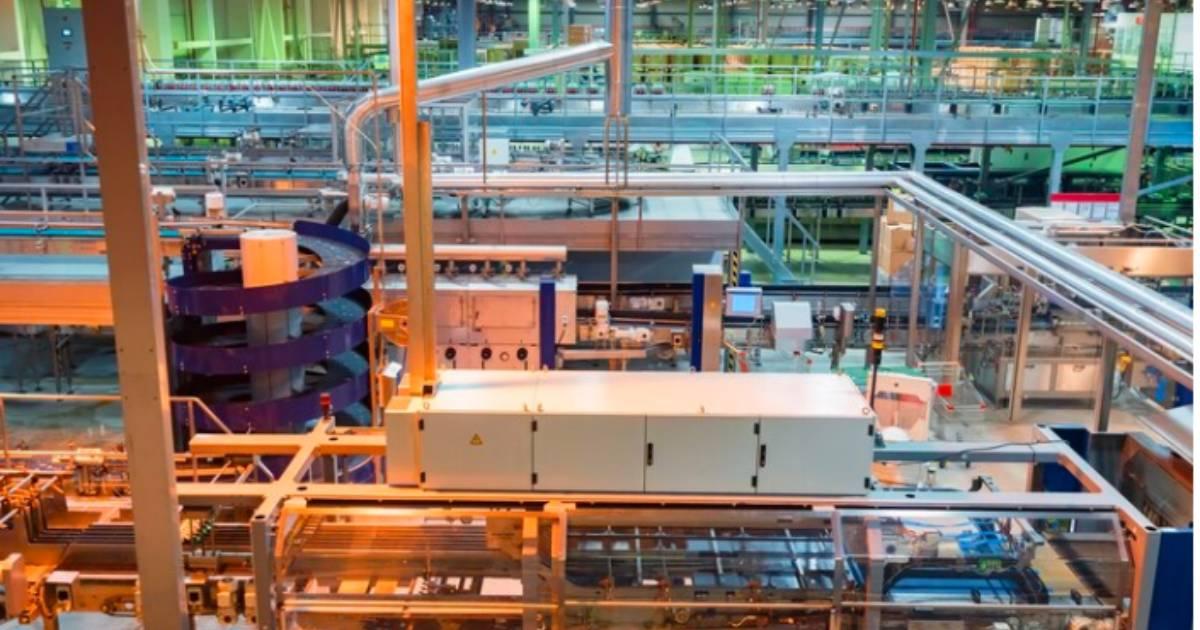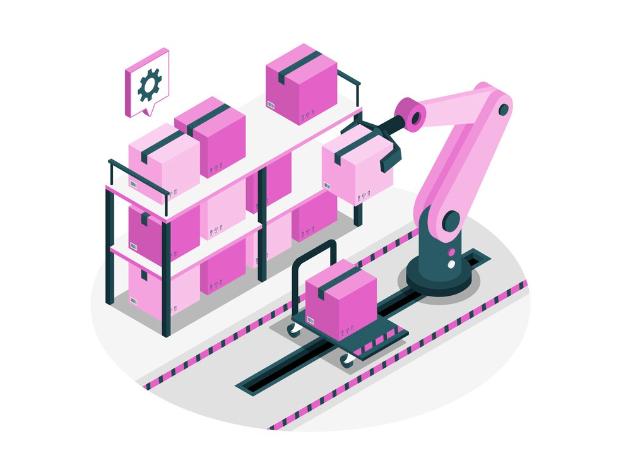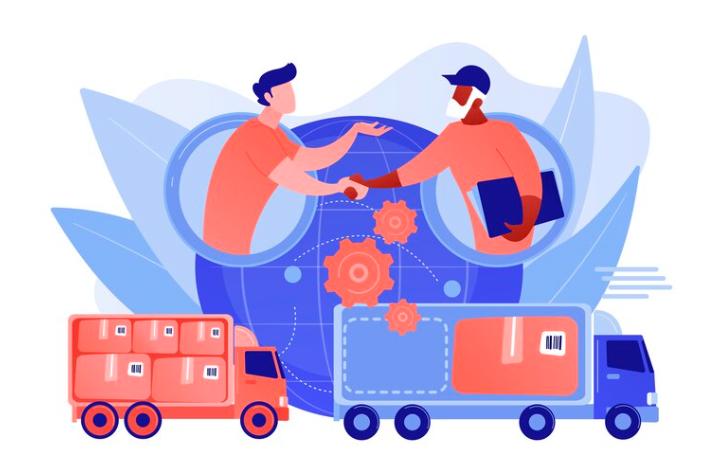
Unveiling the Depths of Manufacturing Logistics: A Comprehensive Exploration"
Feb 25, 2024
Delve into the nuances of manufacturing logistics, uncovering insights that enhance operational efficiency and elevate supply chain dynamics.
In the vast realm of industry, manufacturing stands as a cornerstone, weaving the fabric of the industrial world. However, the intricate processes that underlie manufacturing often remain shrouded in mystery. This blog aims to unravel the complexities of manufacturing logistics, providing an in-depth understanding of their significance and the three-pronged approach that governs their management. Delving into the challenges faced by the manufacturing sector and the transformative role of third-party logistics (3PL) providers, we will navigate through the intricate landscape of manufacturing logistics.
Understanding Manufacturing Logistics:
Manufacturing logistics encompasses every facet of the creation and storage of manufactured goods. It spans from the transportation of raw materials to production lines at the inception of the manufacturing process to the final delivery of the product to customers. The key to success in manufacturing logistics lies in meticulous inventory maintenance and strategic planning. Peak operational efficiency within the manufacturing supply chain not only boosts production levels but also mitigates costly delays, thereby enhancing customer satisfaction.
The Three-Pronged Approach to Managing Manufacturing Logistics:
Efficiently manufacturing any product is a multifaceted endeavor. To streamline the myriad logistical processes involved, they can be categorized into three main phases: Materials, Production, and Distribution.
Materials: Encompasses processes occurring before raw materials reach the production line.
Production: Involves physical product creation and storage.
Distribution: Encompasses processes preparing and shipping a product to its final destination.
Each phase comes with its own set of Key Performance Indicators (KPIs) and performance metrics, crucial for monitoring efficiency and identifying areas for improvement. For instance, the distribution phase might involve tracking total transportation costs, order picking accuracy, or the average number of days late for orders.

Navigating Challenges in Manufacturing Logistics:
Manufacturing logistics, like any complex system, faces its fair share of challenges. Let's explore three prevalent issues and delve into how third-party logistics (3PL) providers can play a pivotal role in overcoming these hurdles.
Rising Transportation Costs:
The manufacturing sector grapples with rising transportation costs, influenced by factors such as fuel prices, global disruptions, and inclement weather. To counteract these challenges, companies can leverage two primary strategies: increasing visibility and engaging the expertise of a 3PL.
Increasing visibility involves investing in tools and technology for real-time tracking and alert notifications. This allows transportation managers to respond swiftly to unexpected delays, optimize routes, and enhance overall efficiency. Alternatively, outsourcing transportation responsibilities to a reliable 3PL offers a comprehensive solution. Equipped with tracking technology, carrier contacts, and shipping assets, 3PL partners streamline freight movement. Moreover, some 3PLs provide in-house warehousing services, offering a holistic logistics solution and substantial cost savings.
Regulations and Compliance:
Navigating complex regulatory landscapes, both domestically and internationally, poses a significant challenge for manufacturers. Compliance with local laws and customs regulations is crucial to avoid delays, fines, or fees. Companies can either designate shipping managers for specific regions or enlist the support of a 3PL.
Maintaining familiarity with local laws in each shipping destination is essential. Large international companies often designate shipping managers for specific regions, while others opt for 3PLs to ensure compliance. 3PLs specialize in understanding local regulations, mitigating compliance issues, and streamlining the shipping process.
Maintaining Inventory:
Inventory management is a perennial challenge in manufacturing. Fluctuating customer demand, evolving production schedules, and material shortages necessitate a nuanced approach. 3PL services extend beyond shipping to include storing finished products and raw materials strategically. They assist in implementing effective inventory management systems, providing real-time visibility into inventory levels, thereby minimizing stockouts and reducing losses from excess inventory.
Exploring the Role of Third-Party Logistics (3PL) Providers:
3PL providers emerge as instrumental partners in overcoming the challenges inherent in manufacturing logistics. Their expertise extends across various facets of the supply chain, offering tailored solutions to enhance efficiency and mitigate risks.
Strategic Transportation Management:
As transportation costs soar, 3PL providers bring strategic solutions to the table. With access to cutting-edge tracking technology, carrier networks, and optimized shipping routes, they streamline transportation operations. By outsourcing transportation responsibilities to a 3PL, manufacturers can focus on core competencies while enjoying cost savings on payroll, carrier management, and insurance.
Regulatory Compliance Expertise:
The labyrinth of regulations and compliance issues becomes more manageable with the support of 3PL providers. These experts navigate the intricate web of local and international laws, ensuring that all necessary paperwork is in order. By leveraging the specialized knowledge of 3PLs, manufacturers can circumvent delays, fines, and penalties, maintaining a seamless flow of goods.
Holistic Inventory Management:
Beyond transportation, 3PL providers offer holistic solutions for inventory management. By strategically storing finished products and raw materials in their warehouses, they optimize space utilization and enhance overall efficiency. 3PLs also contribute to the implementation of advanced inventory management systems, providing real-time visibility into inventory levels and enabling manufacturers to make informed decisions.
The Future of Manufacturing Logistics: Embracing Innovation:
As the manufacturing landscape evolves, embracing innovation becomes imperative for sustained success in logistics. Leveraging emerging technologies and transformative strategies can further elevate operational efficiency and resilience.
Embracing Digitalization:
The integration of digital technologies, such as Internet of Things (IoT) devices, Artificial Intelligence (AI), and blockchain, holds the key to a more connected and transparent manufacturing supply chain. Real-time data insights, predictive analytics, and enhanced visibility contribute to more informed decision-making and streamlined processes.
Sustainable Practices:
The manufacturing sector is increasingly acknowledging the importance of sustainable practices. From eco-friendly packaging to green logistics initiatives, incorporating sustainability into manufacturing logistics not only aligns with global environmental goals but also enhances brand reputation and customer satisfaction.
Supply Chain Collaboration:
Collaboration across the supply chain is pivotal for addressing challenges and unlocking new opportunities. Manufacturers, suppliers, distributors, and 3PL providers working in tandem create a resilient ecosystem capable of adapting to changing market dynamics and ensuring seamless operations.

Conclusion:
Manufacturing logistics, often operating behind the scenes, play a pivotal role in the success of the industrial world. Understanding the nuances of materials, production, and distribution phases, as well as navigating challenges like rising transportation costs, regulatory compliance, and inventory management, is essential for manufacturers. Embracing the expertise of third-party logistics providers amplifies efficiency and resilience, allowing manufacturers to focus on core competencies.
The future of manufacturing logistics is marked by innovation, digitalization, sustainability, and collaborative efforts across the supply chain. As manufacturers embrace transformative strategies and technologies, they not only navigate current challenges but also position themselves for sustained success in an ever-evolving global landscape. In unraveling the depths of manufacturing logistics, we discover a dynamic ecosystem where precision, adaptability, and collaboration are the keys to unlocking a new era of industrial excellence.